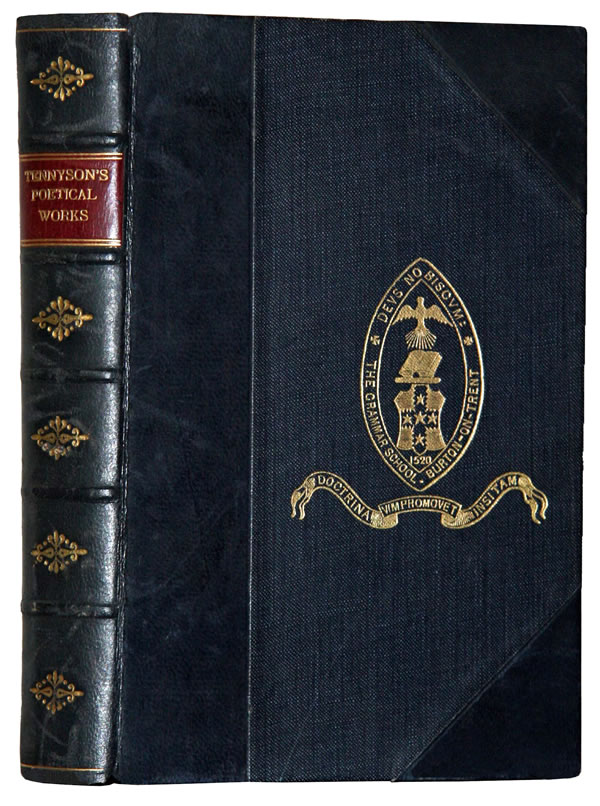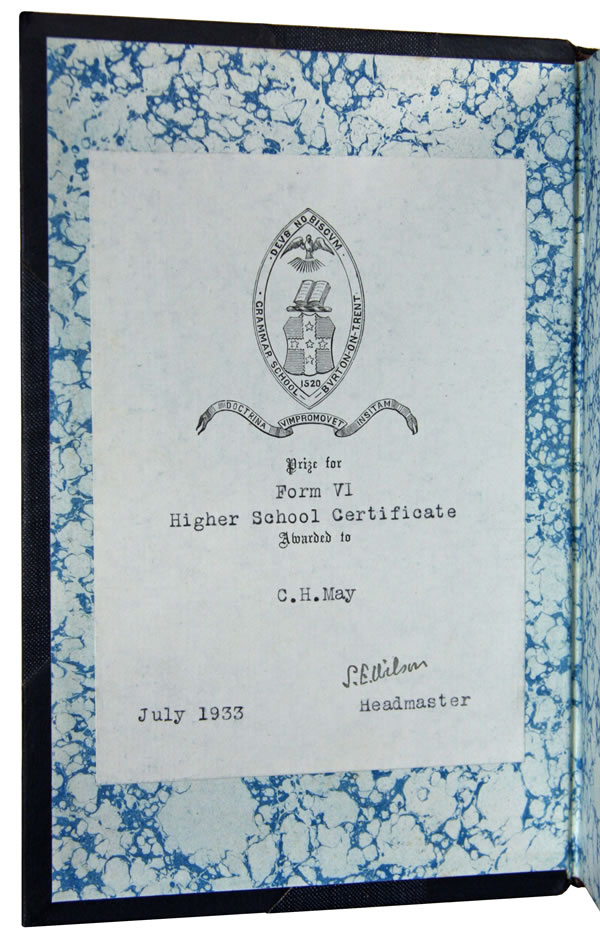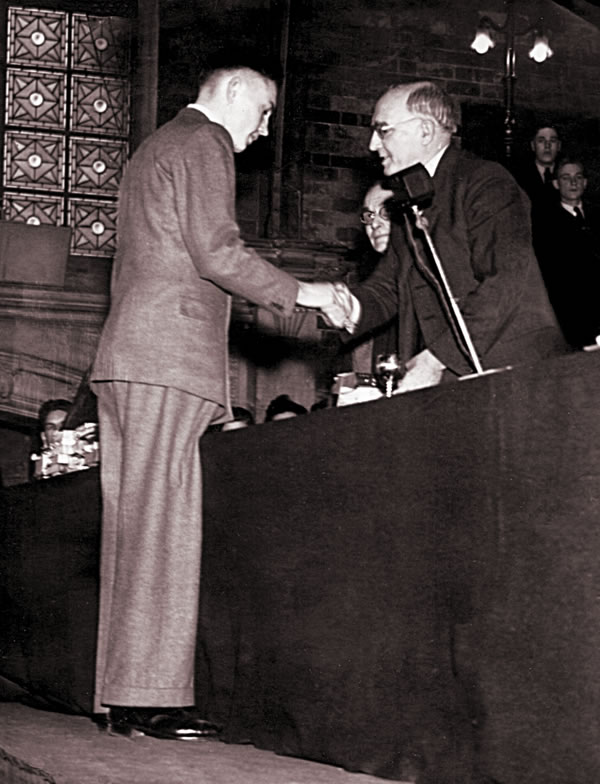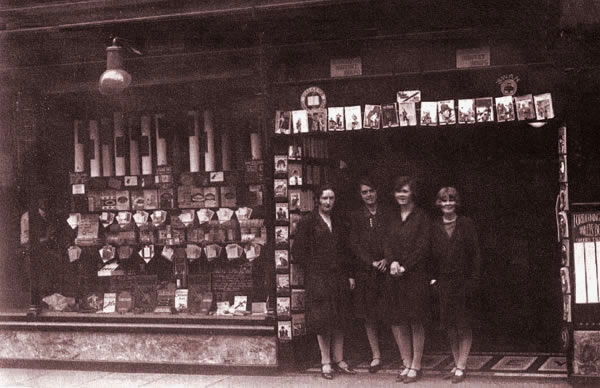Prize Books
Prizes generally took the form of books. In the 1930s and 40s, the Headmaster’s office had a large selection of books laid out for prize-giving.
Two or three prize-winners in order of seniority would go at an appointed time to look over the books and make their selection. The books came from Darleys Bookshop in High Street, opposite what was then Woolworths. At the time, this was the most established bookshop in Burton having been established in 1827 when the Grammar School was still in Friars Walk. It was acted as the first public library in Burton.
If the stocked number of any particular book was reached, it would be removed from the selection. Following this process, the books would have the school crest embossed on the cover and a sticker bearing the prize-winners name, signed by the Headmaster, would be stuck on the inside cover.
This well survived example is ‘Tennyson’s Poetic Works’ and, as can be seen on inside the front cover, was awarded to C.H. May in July 1933 and signed by the Headmaster at the time, Sydney Ernest Wilson.


It is recalled by some that for a pupil’s first prize, the book was C.H. Underhill’s ‘History of Burton upon Trent’, published in 1941.
Speech Day took place at the Town Hall in St. Pauls Square and prize-winners sat on the stage, opposite the choir to make it easier to get to the table mid-stage where the guest-of-honour presented you with your award.
This example shows Ian Pidoux receiving his prize at the 1947 Speech Day, with Mr Nicholson peeping round the guest of honour (unknown).

In later years, prize-winners were allowed to visit Darley’s bookshop and choose their own book upto a maximum value. The winner was expected to choose something vaguely ‘scholarly’, which was overseen at the shop which would, for example, decline the vouchers in the attempt to redeem them for something ‘not quite appropriate’.

The staff can be seen posing in the shop doorway here in 1928. In 1963, Darley’s bookshop was closed and the company moved to new larger premises to concentrate on its printing activities. At the point, the business of supplying prize books was moved to Byrkley books in Station Street, which itself no longer exists. Soon afterwards, ‘Byrkley Book vouchers’ were awarded, to be spent on a ‘suitable’ book.

